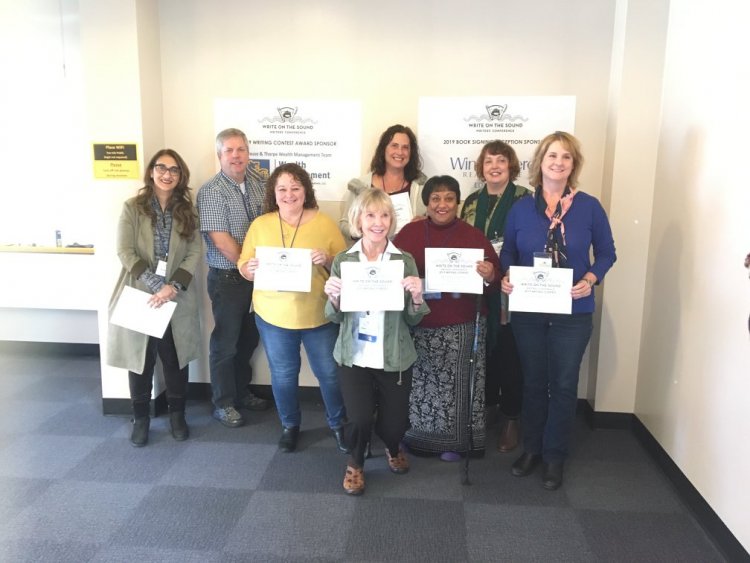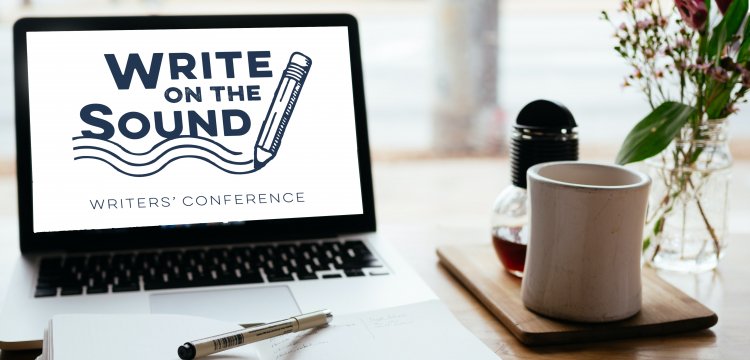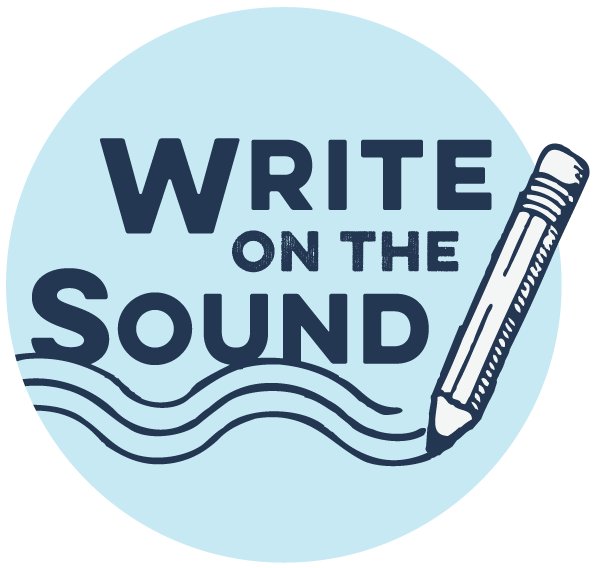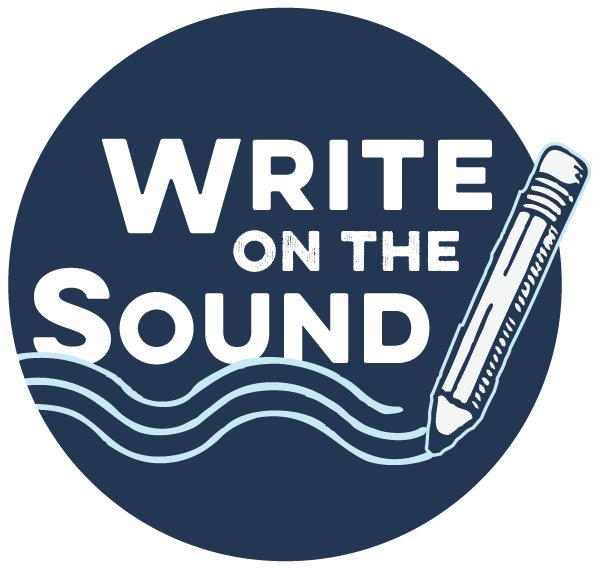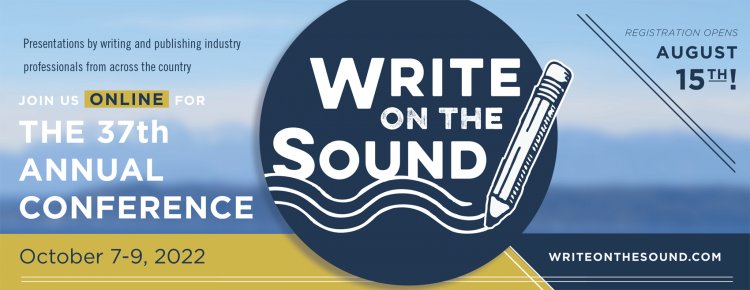In 1985, the City of Edmonds Arts Commission sought to give writers a space to create their own worlds, dream big dreams, see their stories published, exchange ideas, and bond over a mutual love of words and what they can do to the most broken of souls.
Every year since its creative birth, Write on the Sound (WOTS) has attracted writers of all ages, all levels, and in all interests and styles from all over the world to do just that.
This year’s upcoming writers’ conference, scheduled for Oct. 7-9, will again take place online, featuring live and recorded presentations of workshops, sessions, panel discussions — (22 planned) — and one-on-one critiques from award-winning and respected industry experts, published authors, and educators... all designed to sharpen writing instincts and skills for established and aspiring wordsmiths.
A writing contest with cash prizes for fiction, non-fiction, and poetry, following a new theme every year, adds to the fun. This year’s theme is Metamorphosis.
“Write on the Sound is a place to inspire, refresh, renew, and bring authors together in a weekend of high-quality teaching and activities,” explained Lesly Kaplan, WOTS committee chair, Edmonds Arts Commissioner, and retired Edmonds Sno-Isle library manager. “This conference has a solid and long history, and continues to evolve to our changing world as publishing options expand. [This year's] online access brings real-time learning. Recording of sessions for viewing later is also an option.”
Recorded sessions will be available to registered participants Oct. 10-Dec. 31.
“The WOTS annual conference offers any writer an amazing opportunity to learn and explore the craft of writing from experienced writers and publishing professionals. WOTS provides fellow writers a place to share their stories and writing life,” described Jennifer McCord, WOTS committee member/publishing consultant — Jennifer McCord Associates.
The 2020 pandemic forced WOTS to go online, like everyone else. For the past two years, registered writers for the online conference averaged around 150 in number. They plugged in from 26 states, plus Canada, Mexico, Australia, and Europe. Sessions accommodate 20-80 attendees, and that’s for both in-person and online.
“Writing can be such a lonely enterprise. [WOTS] gives you a chance mingle with other writers and share their trials and tribulations and join discussions about the craft and the business side of things in a low-stress format,” according to University of Washington Creative Writing instructor and returning presenter Scott Driscoll (Four Elements of a Scene, Sun., 3:45 p.m.-5 p.m.).
Another returning author-presenter, Bharti Kirchner (Mystery Series in Foreign Settings, Sat., 4:15 p.m.-5:30 p.m.), vouches for the conference’s appeal. “For many years, I have presented workshops, taken part in panel discussions, and served as a panel leader at WOTS. This conference is well-organized, of high quality, and makes it easy to connect with the presenters and the attendees. It's a rare find.”
Author/playwright/educator Elena Hartwell Taylor (“All We Buried,” “Eddie Shoes Mysteries”) goes over a writer’s Point of View: The Right Choice for Your Manuscript, Sun., 9 a.m.-10:15 a.m. She’s been a frequent presenter who wouldn’t miss WOTS for the world.
“WOTS is a wonderful conference. I have been coming for years. With top-notch workshops and helpful, friendly staff, it's one I look forward to year after year.”
Live presentations honor the process of the craft of writing thoroughly and inspirationally, from research and development, and editing, to finding your voice and letting it flow unimpeded.
A sampling of what’s to come, to fire your literary appetite (registration opens Aug. 15.):
Learn to finesse a Killer First Page with Ray Rhamey (“Gundown,” “The Summer Boy”) right off the bat on Fri., 9:30 a.m.-12:30 p.m. His interactive, all-levels “critiqueshop” is set up as a truly democratic process, where everyone gets to decide together whether to turn the page on each other’s fiction and memoir based on first impressions. It’s a living, working example of analysis, storytelling, and application on the spot.
Author/medical story coach Natalie Dale (“Doc Talk,” “A Writer’s Guide to Medicine”) gets specific in her TGIF Happy Hour session, Don’t Pull Out the Knife!, 3:30 p.m.-4:40 p.m.
Her fun, lighthearted session delves into adding accurate medical details in a story. Dale uses humor to zero in on the beating heart of the matter, as she goes over “some of the most frequently misunderstood medical topics found in fiction…knocking a character unconscious…types of amnesia, how comas really work, medication administration, decaying bodies, and proper care for penetrating injuries [WOTS website, Conference Schedule]…” — hence, the title of her session.
One of the hardest aspects of writing a memoir or piece of fiction falls to the dialogue, how to make a conversation realistic, yet moving, what would the characters say without boring the reader. UW’s Theodore Roethke Writer-in-Residence Laura Kalpakian (“The Great Pretenders,” “Belle Haven”) shows writers the hard work and the art of piecing the right-feeling words together from memory by applying four foundational elements she’s developed. Sign up for Did He Really Say That?: Dialogue in Memoir, Sat., 2:30 p.m.-3:45 p.m.
Bharti Kirchner’s workshops invite imagination, diversity, and an openness to discovery and genuine representation. The 2020 SALA award-winning author (“Season of Sacrifice,” “Murder at Andaman”) returns to WOTS again this year to present Mystery Series in Foreign Settings, Sat., 4:15 p.m.-5:30 p.m.
The session will go over essential elements and character types in writing mysteries set in foreign lands, and “also shed light on why some characters are better suited for a series than others, various elements that make a foreign location come alive, and how to introduce and sustain diverse characters and make them true-to-life [WOTS website, Conference Schedule].”
Before launching into the story, Elena Hartwell Taylor advises writers to think through Point of View [The Right Choice for Your Manuscript] in her Sun., 9 a.m.-10:15 a.m. session. Taylor coaches manuscript/script writers as a senior editor with Allegory Editing, and will help coach conference registrants through their own point-of-view choices in first- to third-person, third multiple — third close, and omniscient — “and the pros and cons of each, along with common errors and industry trends [WOTS website, Conference Schedule].”
The part of writing that receives little attention is probably one of the most important: research. And part of that research involves interviewing people related to the subject matter. Cynthia Simmons teaches Quick & Effective Interviews for Research Sun., 10:45 a.m.-noon, by implementing conversational techniques to generate “quick-set intimacy,” establishing organic rapport and encouraging the other person to relax and open up, to flesh out fiction, non-fiction, and journalism.
“Learn how to ramp up to greater comfort by using disclosure, how much — and what — to tell about yourself, and how to model storytelling to get quotes that sparkle [WOTS website, Conference Schedule].”
Not to be missed, Shawn Wong (“Homebase,” “American Knees”) helps guide writers to embrace their own authentic voice while tuning out the static of the world and all its fallacies in his plenary session, Writing Truth Instead of Facts, Sun., 12:30 p.m.-1:45 p.m., included with registration.
Wong has much experience listening, learning, and bringing out the real stories of those facing emotional and mental blocks as the founding instructor of the Red Badge Project for veterans with PTSD. He’s also an award-winning novelist, UW professor (Asian-American literature), screenwriter, and race car driver.
Learn his three simple principles for building story, finding a voice, and healing through it all.
Indigenous Poet Laureate of Washington State — 2021-2023 Rena Priest (“Patriarchy Blues,” “Sublime Subliminal”) delivers a surefire method for finding character, story, and flow through Music and Memory in Poetry, Sun., 2:15 p.m.-3:30 p.m.
In Scott Driscoll’s workshop, Four Elements of a Scene (Sun., 3:45 p.m.-5 p.m.), writers explore the nuts and bolts of putting a scene together for maximum effect. Award-winning University of Washington instructor, creative writing, and author (“Better You Go Home”) deep-dives into the complexity, tension, and allure of scene-setting, referencing an example from Olive Kitteridge’s short story, “A Little Burst.”
2019 writing contest winners (not in pictured order): Zeinab Agha, James Backstrom, Barbara Anderson, Vanessa Arpin, Susan Frederick, Marie Hartung, Alyssa Jeter, Mary-Leah Moore, Dianne Vogel.
